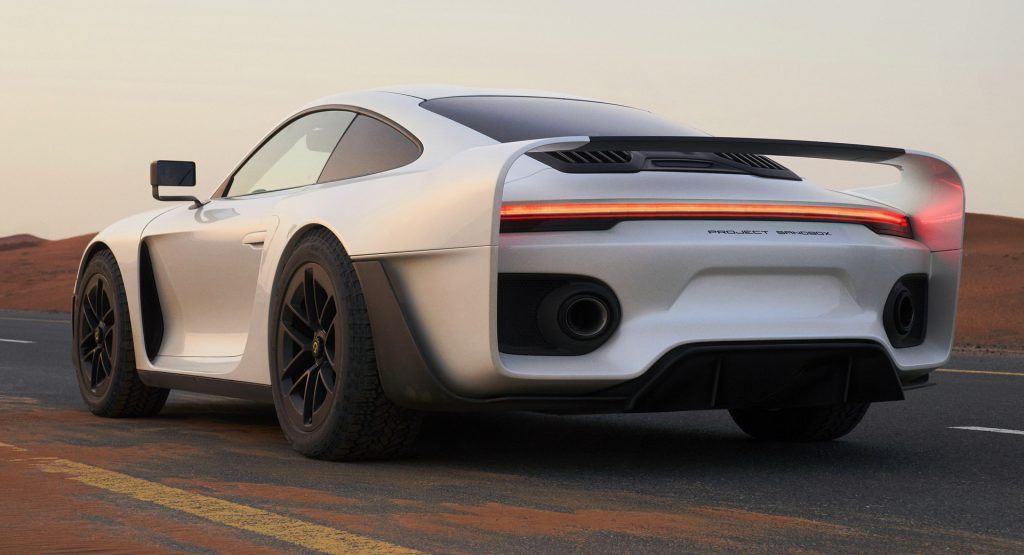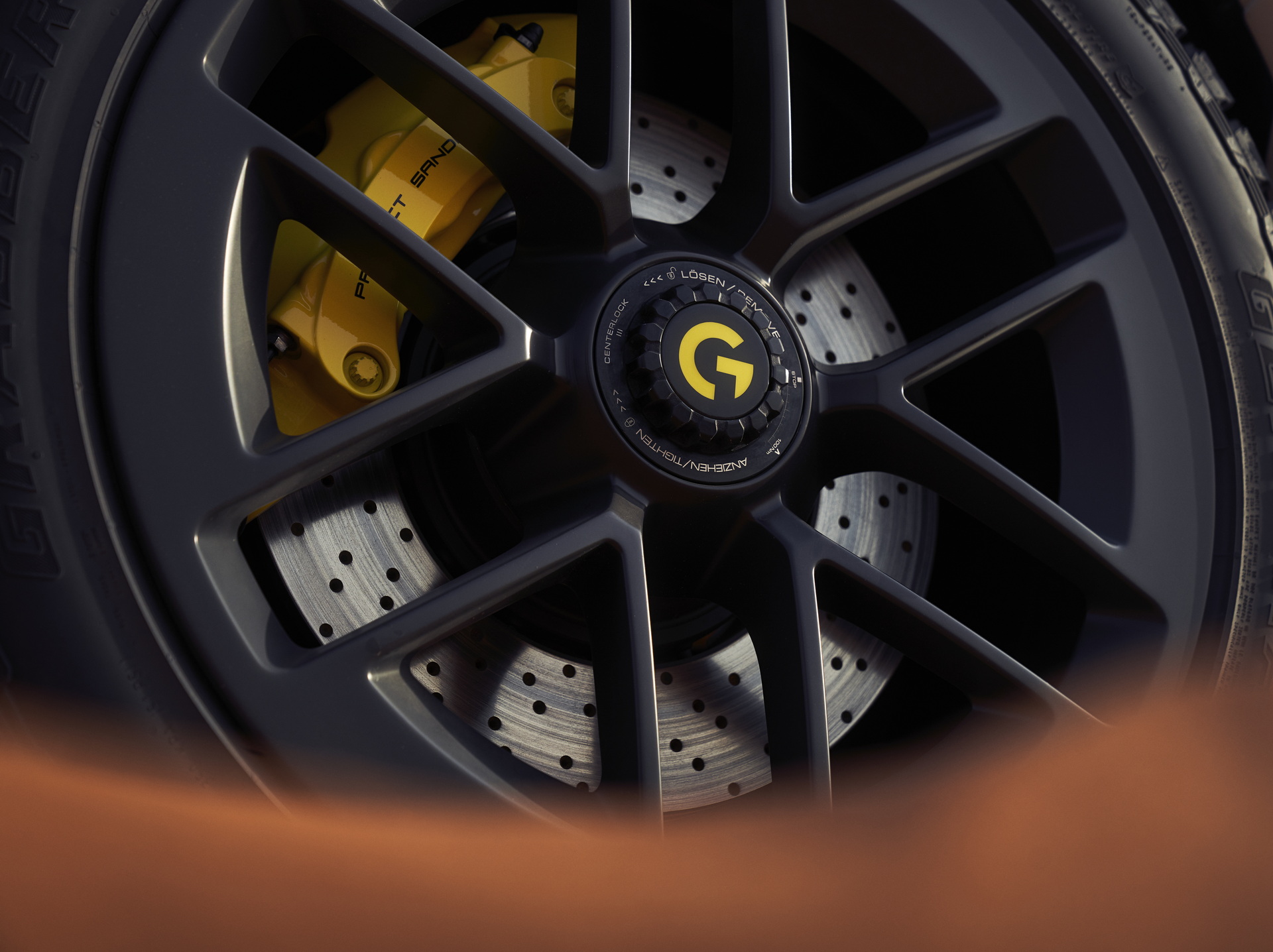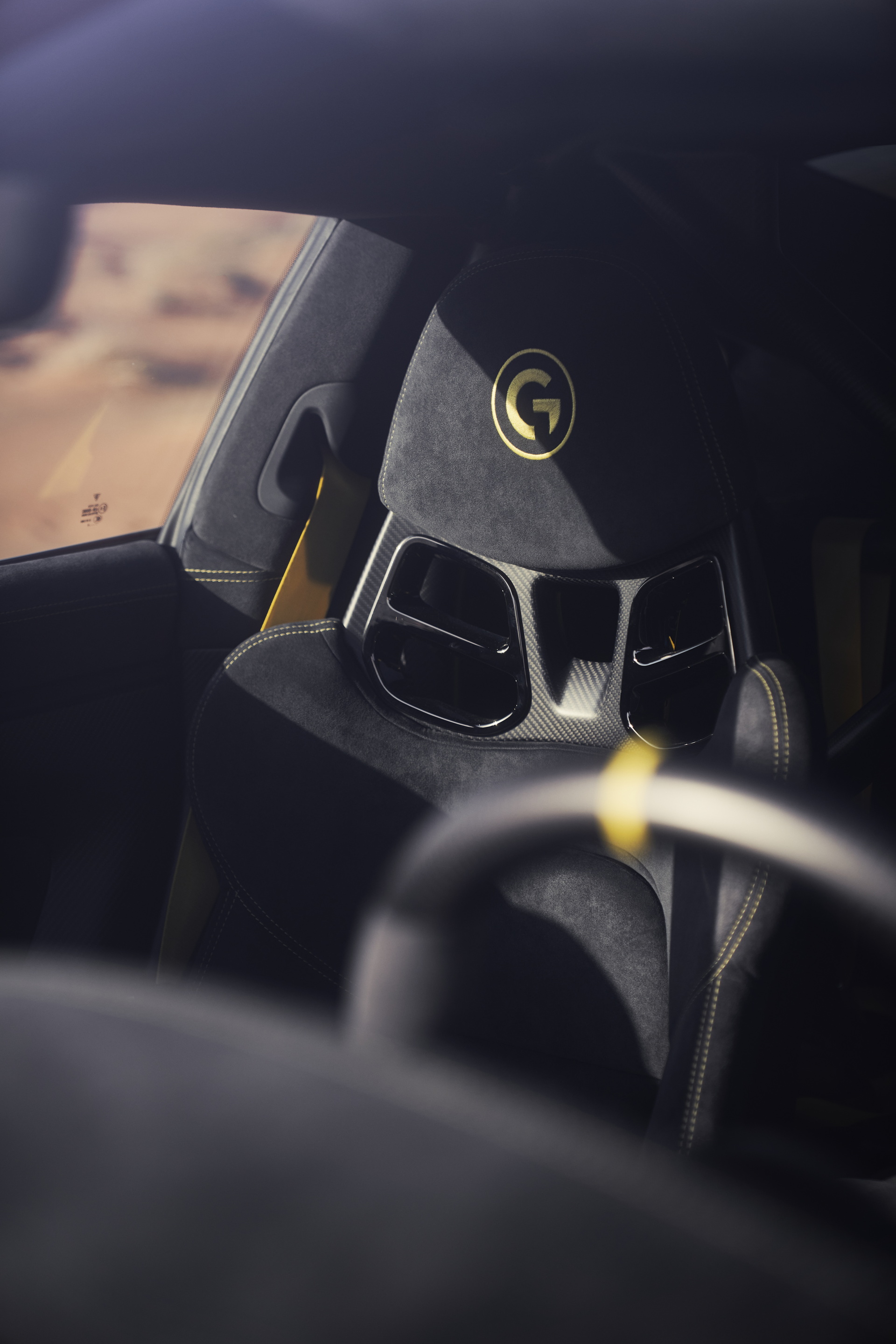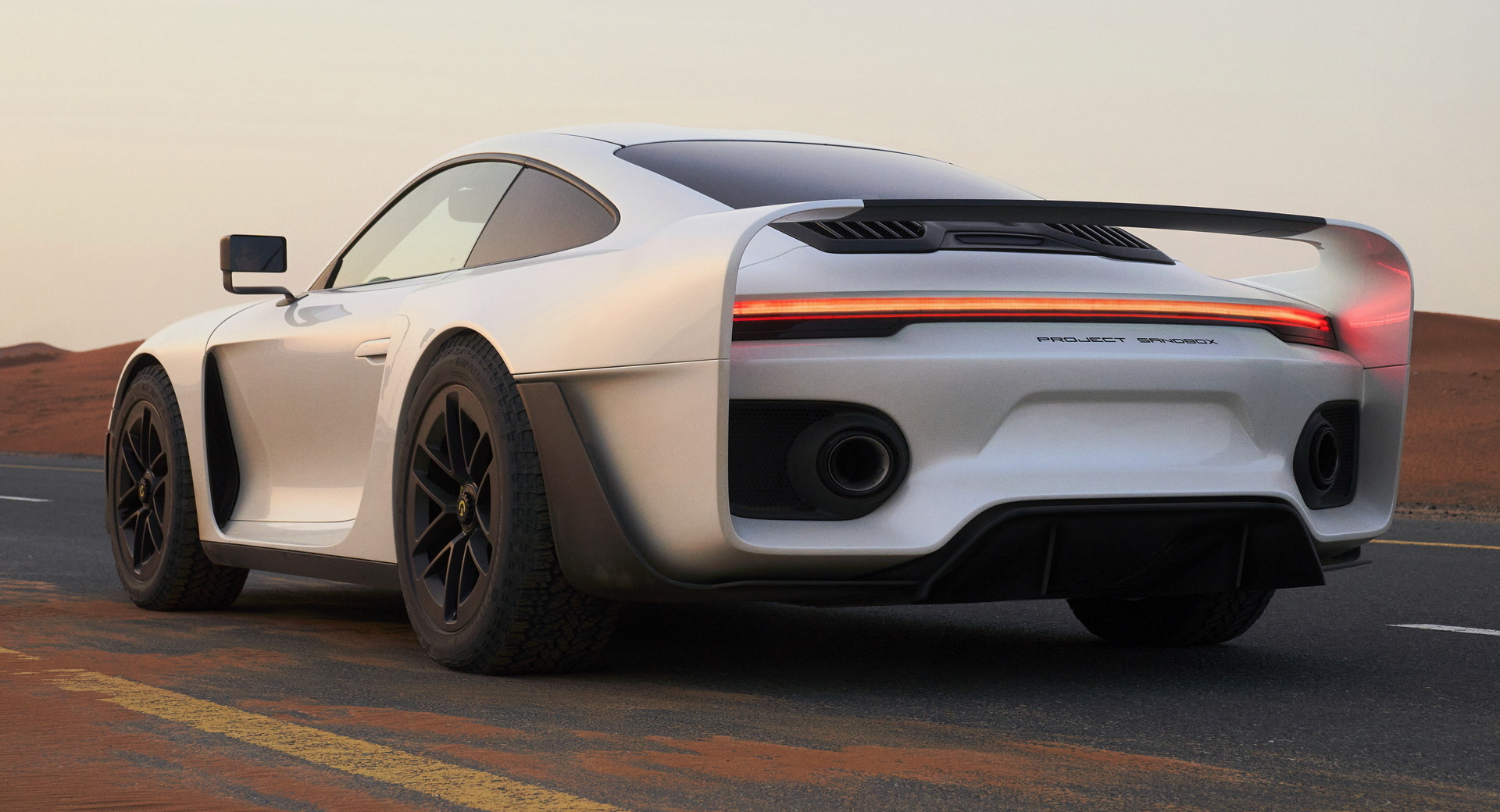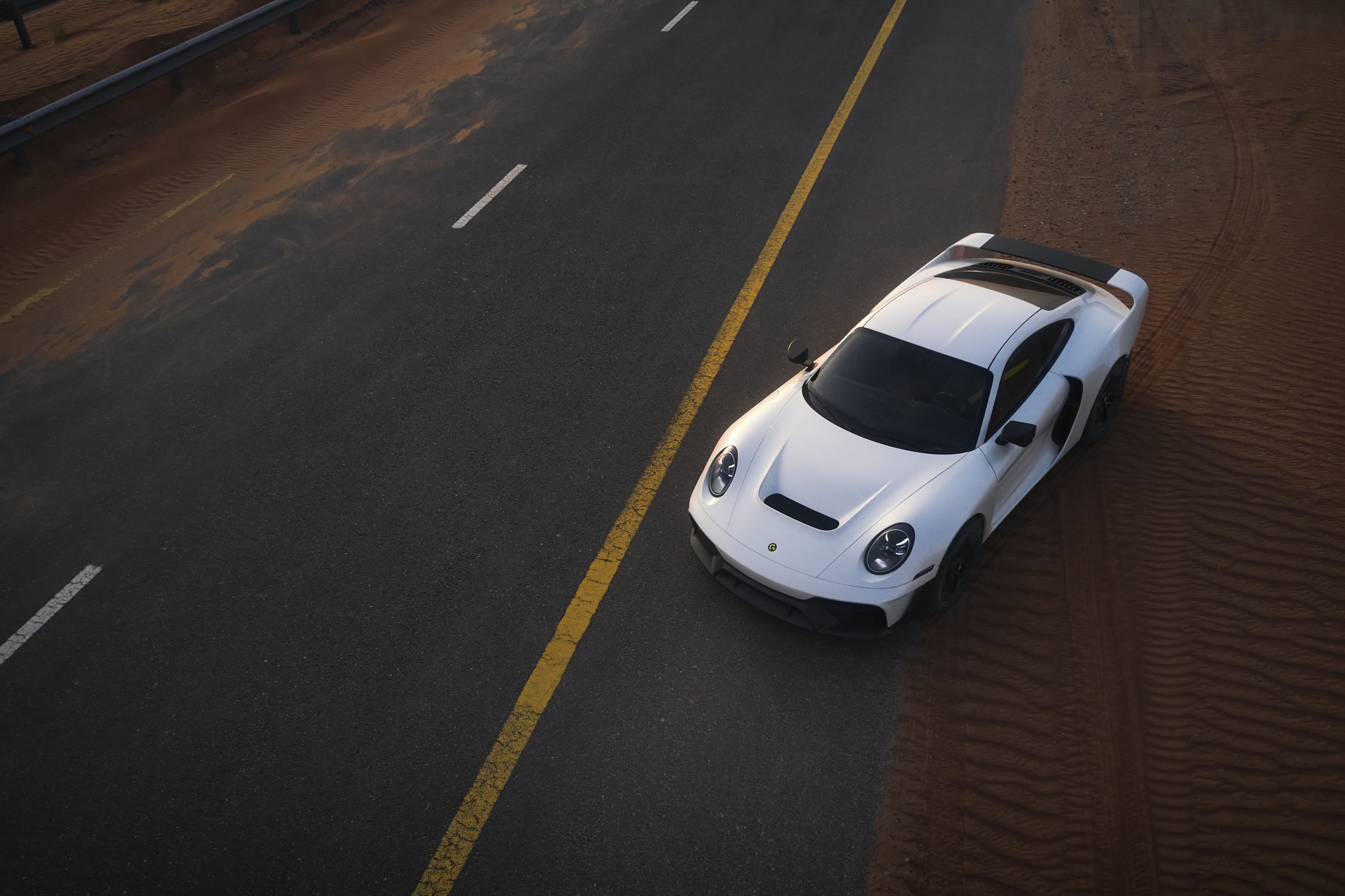Marc Philipp Gemballa GmbH’s ode to the Porsche 959 that took on the Paris-Dakar race is finally here. The Marsien is a high-riding, all-wheel-drive, carbon-bodied take on the 911 Turbo S.
Unveiled today, the company will produce just 40 of these rally-inspired 911s, half of which have already sold. The name, French for Martian, was inspired by the red sands of the Al Faya desert in the United Arab Emirates, where the company (named after its founder and in no way related to the company Gemballa) tested the car.
“We felt like as if we were in an entirely different universe,” says Marc Philipp Gemballa. “Since it looked and felt like we were on Mars paired with the futuristic design and the vehicle’s off-road capabilities, we couldn’t think of a more fitting name for our first project.”
Read Also: High-Riding Porsche 911 Safari Caught Looking Taller Than Ever At The Nurburgring
A RUF Start
The car is based on a 992 generation 911 Turbo S, but its twin-turbo flat-six engine is sent off to Porsche specialists RUF, who tune it to add 100 hp. As standard, the Marsien makes 740 hp (750 PS/552 kW) but distinguishing customers can ask the company to turn the engine all the way up to 818 hp (830 PS/610 kW). Torque tops out at 686 lb-ft (930 Nm) and to make it all sound just right, a lightweight Akrapovic exhaust system is added.
That power, along with the lightweight carbon fiber body, and the eight-speed PDK gearbox, help the car get up to 62 mph (100 km/h) in just 2.6 seconds and on to a top speed of 205 mph (330 km/h), albeit only with the road tires fitted. That’s an important distinction because unlike the majority of 911s, the Marsien isn’t all about on-road performance. In fact, it gets Michelin Ultra High-Performance tires for on-road use and All-Terrain tires for off-road use.
You Raise Me Up
Along with the All-Terrain tires, Marc Philipp Gemballa GmbH worked with KW Automotive to sort out a suspension system that, at the touch of a button, can raise the suspension from its stock ride height, giving it up to 250 mm (9.8 inches) of ground clearance.
This isn’t a case of simply adding some hydraulic shocks, though. The companies revised the suspension, giving the car a completely new double-wishbone setup at the front, using reinforced Porsche Cayenne joints for the extended driveshafts, and incorporating solid-piston dampers with intelligent active damper control for on- and off-road use. The suspension and engine have been remapped to include new Gravel, Mud, Sand, and Snow modes, too.
If you don’t think you’ll use your new Marsien on the road much, you can opt for a fixed ride-height suspension from Reiger Suspension that comes in full rally tune. Either way, though, you get an aluminum skid plate to protect the underside of the car from damage.
Keeping Things Light
The body was designed by Alan Derosier, who gained notoriety for a handful of his Porsche design studies. To make sure that the car didn’t just look cool, the team also did intensive computational fluid dynamics analysis with the help of KLK, a team that has aero development experience from Le Mans, Formula E, and Formula 1 racing.
As mentioned previously, the entire body is made of carbon fiber and if you want to show off to the world, there’s a bare carbon option. If you want a little more color in your life, though, Marc Philipp Gemballa GmbH says it can fulfill any customer request. The car you see here has a triple-layer pearl white paint with metallic flakes, finished with a ceramic coating. As standard, certain elements (the front splitter, the side flaps, the wing mirrors, etc) are left in bare carbon to provide contrast.
Finally, the interior is upgraded, too, and it will doubtless please Porsche fans. Taking inspiration from the Carrera GT, the center console is lifted and made of carbon fiber with a plaque sporting the production number of the car embedded in it. It also has GT-style door lashes, carbon fiber side sills, and carbon accents throughout the interior. Leather seats with the company’s logo are also installed and can be customized to the buyer’s specifications.
For all of its work, Marc Philipp Gemballa GmbH is charging €495,000 ($585,000 USD) plus the cost of a 911 Turbo S, which rings it at $207,000 these days. We’re starting to understand why there will only be 40 of these, although with billionaires racing to space, this may not seem that expensive anymore. The company expects production to start later this year.




